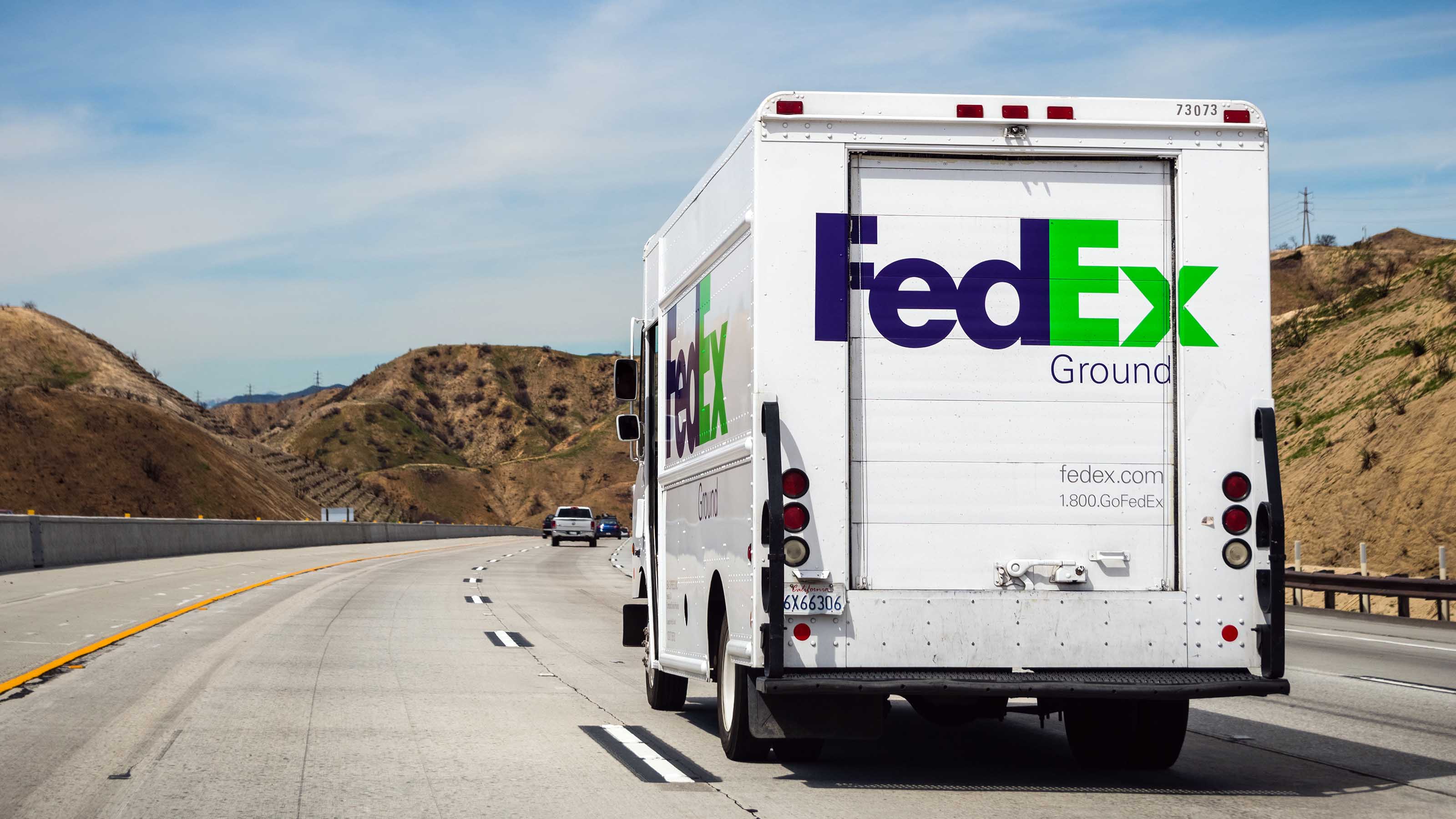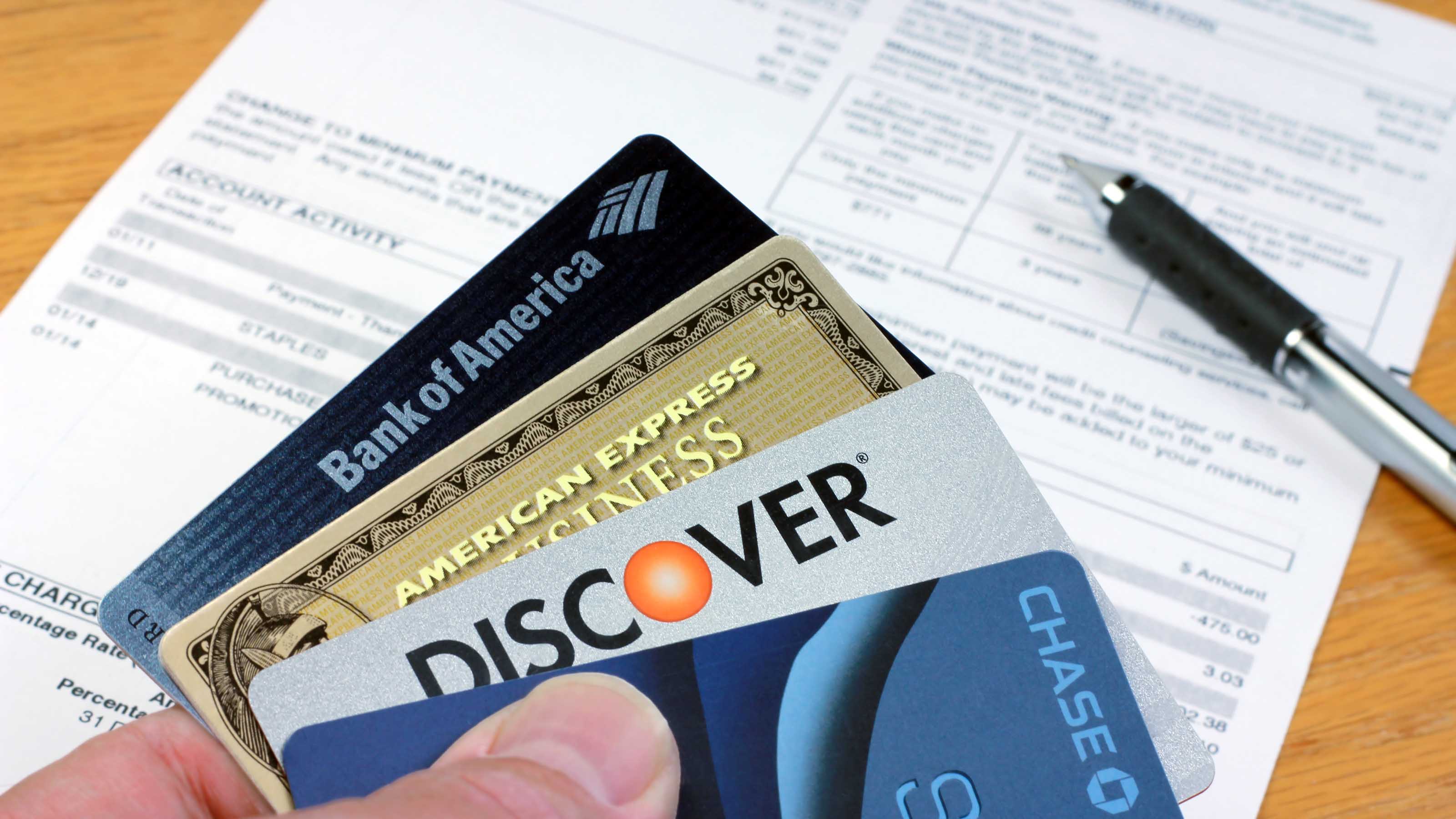10 Safe Dividend Stocks You Can Rely On
2020 has hammered home the importance of investing in safe dividend stocks, such as these 10 picks with conservative payout management.


Profit and prosper with the best of Kiplinger's advice on investing, taxes, retirement, personal finance and much more. Delivered daily. Enter your email in the box and click Sign Me Up.
You are now subscribed
Your newsletter sign-up was successful
Want to add more newsletters?

Delivered daily
Kiplinger Today
Profit and prosper with the best of Kiplinger's advice on investing, taxes, retirement, personal finance and much more delivered daily. Smart money moves start here.

Sent five days a week
Kiplinger A Step Ahead
Get practical help to make better financial decisions in your everyday life, from spending to savings on top deals.

Delivered daily
Kiplinger Closing Bell
Get today's biggest financial and investing headlines delivered to your inbox every day the U.S. stock market is open.

Sent twice a week
Kiplinger Adviser Intel
Financial pros across the country share best practices and fresh tactics to preserve and grow your wealth.

Delivered weekly
Kiplinger Tax Tips
Trim your federal and state tax bills with practical tax-planning and tax-cutting strategies.

Sent twice a week
Kiplinger Retirement Tips
Your twice-a-week guide to planning and enjoying a financially secure and richly rewarding retirement

Sent bimonthly.
Kiplinger Adviser Angle
Insights for advisers, wealth managers and other financial professionals.

Sent twice a week
Kiplinger Investing Weekly
Your twice-a-week roundup of promising stocks, funds, companies and industries you should consider, ones you should avoid, and why.

Sent weekly for six weeks
Kiplinger Invest for Retirement
Your step-by-step six-part series on how to invest for retirement, from devising a successful strategy to exactly which investments to choose.
When investors evaluate dividend stocks, they'll typically look at the yield first, then maybe delve into how much it's growing. Far less exciting is how safe the dividend is – but if 2020 isn't a lesson in why it's important to invest in safe dividend stocks, nothing is.
Hundreds of companies have reduced or suspended their dividends this year, including dozens of big-name firms such as Boeing (BA), Ford (F) and Disney (DIS). For younger investors, that's less money you can put back to work and compound over time. For investors who rely on dividends in retirement, that's literally an income reduction that can negatively impact your quality of life.
So, how do you identify safe dividend stocks? One of the easiest places to start is with the dividend payout ratio, which measures the percentage of profits that are paid out as distributions. It's an easy calculation: Simply divide dividends per share by earnings per share. The higher the percentage, the more net profits go toward sustaining the dividend – and the more risk that a sudden reduction in profits would lead to a negative dividend action.
The average S&P 500 payout ratio in 2019 was 42%. That's a fine benchmark, but in the spirit of finding truly safe dividend stocks, we're going to explore a group of companies with a payout ratio of 25% or less. We're also going to look for stocks that have a history of relatively recent dividend growth, even if that growth has temporarily stalled as a result of COVID-related financial hurdles.
Here are 10 safe dividend stocks that have plenty of breathing room. Some have slumped in 2020, while others have bucked the trend and shot meaningfully higher. But in all cases, conservative dividend management is serving them (and investors) well.
Data is as of Aug. 24. Stocks listed in reverse order of dividend yield. Dividend yields are calculated by annualizing the most recent payout and dividing by the share price.

UFP Industries
- Market value: $3.8 billion
- Dividend yield: 0.8%
UFP Industries (UFPI, $61.85) makes wood and wood composite building products for construction, industrial and retail solutions. So it goes without saying that it doesn't make headlines all that often.
But the company formerly known as Universal Forest Products has put up a blowout 2020 in what has been a breakout year for lumber amid a resilient housing market.
UFPI also deserves an "atta boy" for the growth in its dividend. The company, which switched from semi-annual payments to quarterly ones this year, is set to deliver 50 cents per share across 2020. That's up 83% from 2010, when it delivered 13.33 cents per share (adjusting for its 3-for-1 stock split in 2017). That's a 14.4% compound annual growth rate in the payout over the past decade.
This is a safe dividend stock, too. That 50 cents is just 19% of the $2.65 per share UFP Industries is expected to earn in 2020. For another measure of safety, we'll look at the dividend compared to cash flow per share. Here, we'll use independent investment research firm Value Line's definition, which is net profits + depreciation minus preferred dividends. UFPI is great on this front, too, with the expected 50 cents in dividends representing just 12.3% of expected cash flow of $4.05 per share.
Wedbush analyst Jay McCanless only has a Neutral rating on shares, but he recently raised his price target from $45 per share to $56, citing "a mixture of good news from the Retail segment with double-digit volume gains due to high demand from UFP's customers."
Stock research group CFRA is much more bullish, with a Strong Buy rating on UFPI, noting that valuation, quality, growth, financial health and price momentum are all positive.

PulteGroup
- Market value: $12.8 billion
- Dividend yield: 1.0%
Speaking of good things from the housing market, homebuilder PulteGroup (PHM, $47.62) is up 23% year-to-date and has the kind of balance sheet you want to see should the industry cool off in the near term.
PulteGroup, founded in 1950, is one of the largest homebuilders in the U.S., with 93,359 owned lots across 26 states and Washington, D.C. More than 40% of revenues come from Florida and the rest of the Southeast, and another quarter of revenues come from Western states.
The company paid out 45 cents per share in 2019, which was a mere 12.3% of profits. The payout ratio is expected to expand a bit, to 15.7%, based on slightly lower 2020 earnings estimates from Value Line and a current indicated annual dividend of 48 cents. Regardless, a 16% dividend payout ratio is a low and presumably sustainable number that keeps PHM among Wall Street's safer dividend stocks.
PulteGroup stopped paying a dividend in 2009 amid the Great Recession, but it resumed cash distributions in 2013 at 5 cents per share quarterly. Since then, that has blossomed to 12 cents per share – an average annual growth rate of 13.3%.
But investors might want to wait for better prices before buying in. Not only is the 1% yield modest, but CFRA and Credit Suisse analysts both think shares were fully valued back at $45, and the stock has run up a little more since hitting that price point.

McKesson
- Market value: $24.3 billion
- Dividend yield: 1.1%
McKesson (MCK, $149.66) took a few lumps with the rest of the market earlier this year, but the nature of its business meant very little risk from the COVID-19 pandemic. That's because McKesson is a wholesale distributor of pharmaceuticals, a wholesaler of medical supplies and equipment, and a provider of health care technology solutions.
Indeed, amid a pandemic-ravaged economy, McKesson has raised its 2020 guidance twice this year, first from a range of $14.60-$14.80 to $14.67-$14.87, and then to $14.70-$15.50.
The company also has compelling dividend characteristics. While the yield is just 1.1% at current prices, MCK is a safe dividend stock that has also been growing its distribution like a weed.
McKesson's $1.60 per share in payouts across 2019's four quarters was less than 12% of the company's $13.57 in adjusted earnings per share. Currently, McKesson is indicating $1.68 per share in annual dividends, which is just 11% of 2020 profit estimates, and a measly 7.7% of projected cash flow per share.
MCK raised its payout just 2% to 42 cents per share in July, but it still boasts a nice 8.8% compound annual dividend growth rate over the past decade.

FedEx
- Market value: $57.0 billion
- Dividend yield: 1.2%
Shipping giant FedEx (FDX, $217.40) technically should be on the outside looking in. Its fiscal 2020 payouts totaling $2.60 per share were 27% of the $9.50 per share it earned across the year – a still-safe figure, but above our 25% threshold.
However, from a cash flow perspective, the dividend is an uber-safe 11% of cash flow, according to Value Line estimates.
FedEx also probably deserves a pass just given the strength of its business. The company's shares have shot up by 44% year-to-date, because while the COVID-19 pandemic did manage to disrupt its business, the company announced much-better-than-expected earnings in June, as accelerated adoption of e-commerce clearly drove more business-to-consumer volumes, which FedEx capitalized on with more aggressive pricing.
"COVID-19 has driven a profound acceleration in lower margin B2C volumes; the negative mix shift that both FDX and UPS (as well as other industry players/stakeholders) were expecting to materialize over the course of the next several years has taken place in just a few short months," writes Credit Suisse analyst Allison Landry, who has an Outperform rating (equivalent of Buy) on FDX stock. "Based on FDX's comments, the recent peak – like surcharges levied by both itself and UPS on large/high volume customers appear to signal a more comprehensive and permanent shift in the pricing environment."
If there's any concern to have about FedEx's shares, it's their dividend growth. While FDX has averaged more than 19% compound annual dividend growth over the past decade, the company has failed to raise its payout since the beginning of 2018. However, this largely could do with its continued integration of TNT Express, which it acquired in 2016, as well as necessary spending to improve its operations.
FedEx still appears to have an airtight dividend, but an increase to the payout would be a welcome sign.

Brunswick
- Market value: $5.0 billion
- Dividend yield: 1.5%
Brunswick (BC, $63.22) is a storied maker of recreational products dating back to 1845. Today, it concentrates on making boats, engines and along with related services under brands including Bayliner, Sea Ray, Mercury, SmartCraft and many more.
BC shares lost nearly 60% of their value from peak to trough earlier this year. Investors fretted that sales of boats and other marine craft, among the most discretionary of purchases, would suffer amid a sharp recession. But shares have since rebounded to positive territory and even hit an all-time high in late July.
"BC saw surging demand in May and June for new boats and engines as well as 'record June retail for almost all our boat brands,'" writes Wedbush analyst James Hardiman (Outperform). "Management now anticipates that the U.S. retail market will finish up low-single digits for 2020, a monumental adjustment vs. the previous 'high-teens to low-twenties decline.'"
Brunswick's dividend has exploded from a single annual payment of a nickel per share in 2009 to quarterly payouts of 24 cents per share. That's a mammoth compound annual dividend growth rate of roughly 33% through the end of last year. Currently, Brunswick is indicating 2020 payments totaling 96 cents per share, though that could be more by year's end if BC keeps up its dividend-hiking ways.
BC is among the safer dividend stocks you can buy, too. The 87 cents it paid in dividends last year represented just 20% of the company's $4.33 in per-share profits. It was an even smaller 14% of its $6.37 in cash flow per share, according to Value Line.
CFRA joins Wedbush in its bullishness for BC, rating it a "Strong Buy" based on valuation, quality and momentum, among other factors. Value Line is a bit more cautious, ranking Brunswick shares a "3" indicating shares are less likely to outperform the market, though for dividend investors, this might not matter as much.

Oshkosh
- Market value: $5.4 billion
- Dividend yield: 1.6%
Oshkosh (OSK, $78.84) isn't the kids clothier that likely popped into your head.
This Oshkosh, which dates back to 1917, makes elevating work platforms, towing vehicles, firefighting trucks, military vehicles and other equipment.
COVID has clearly taken a bite out of OSK shares, which are off 18% year-to-date, and it has created several crosscurrents in Oshkosh's markets. For instance, domestic construction issues are dampening demand in its lift business, but business is picking up in China, where Oshkosh has a foothold. Financially strapped municipalities in the U.S. are also constrained in their purchases of things such as ambulances and fire trucks.
Not surprisingly, management is no longer offering guidance.
Still, the company reported adjusted third-quarter earnings of $1.18 per share that, while significantly down from last year's $2.74 per share, managed to handily beat consensus expectations for 49 cents per share.
This is an example of how strong dividend coverage matters. OSK's dividend payout ratio for 2019 was a mere 13.3% of its $8.32 in earnings per share. Even given a significant short-term hit to earnings – which Value Line estimates will come to $4.20 per share this year – Oshkosh has all sorts of headroom, Its $1.20 in projected full-year payouts come to just 28% of those expected profits.
Meanwhile, OSK's payout has doubled since its resumption in 2013.

BorgWarner
- Market value: $8.6 billion
- Dividend yield: 1.7%
BorgWarner (BWA, $41.38) is hardly a household name, but this mid-cap auto-parts supplier ranks among some of the best stocks you've probably never heard of. And despite the downdraft of the pandemic on the auto industry, the company's fundamentals are solid.
"BWA has now posted mid-single digit or higher market outgrowth in 13 of the past 14 quarters," write Credit Suisse analysts (Outperform), who believe that the company's outlook for decelerating outgrowth in the second half is likely on the conservative side.
"One of the highlights of BWA's 2Q beat was a better-than-expected decremental margin of 28%, better than the 30%+ decremental margin BWA had previously guided to, and not far off the 1Q decremental of 26%," they add.
For 2019, BWA's 68 cents in dividend payments were just 16% of total profits. That number will be higher this year – closer to about 30% based on Value Line's estimates, which were cut nearly in half based on COVID-related troubles. Still, even with a leaner forecast, expected cash flows for 2020 are $4.10 per share. That's a 16.5% payout ratio passed on a similar projected dividend total for 2020.
Like FedEx, the major criticism here is dividend growth. BWA began paying a quarterly dividend of 12.5 cents per share in 2013, which increased to 17 cents by the end of 2017. Since then, however, BWA has been extremely conservative with its payout. So if you're specifically looking for dividend growth, some of the other safe dividend stocks on this list will be more your speed.

American Financial Group
- Market value: $6.0 billion
- Dividend yield: 3.1%
American Financial Group (AFG, $67.36) is an insurance holding company that offers property and casualty insurance for business as well as annuities, primarily through its Great American subsidiary, an old line insurer that dates back to 1872.
Like many insurers, American Financial Group has taken a deep financial hit from the pandemic. Shares haven't bounced back with the rest of the market, and remain down nearly 40% year-to-date, pushing the yield up to more than 3%.
Naturally, the question for income investors is: Can such a battered company continue to pay its dividend?
Fortunately, AFG has quite the safety net. The company's $1.65 per share in regular quarterly dividends last year were just 17% of its $9.85 in full-year profits. However, AFG also issues special dividends based on its financial performance, so it also doled out one-time payouts of $1.50 and $1.80 per share, respectively. Similar payouts, along with a projected $1.80 per share in regular dividends, would result in an actual yield closer to 7.6%.
American Financial Group has yet to pay special dividends this year – to be expected given the company's difficult run this year. But the regular payout is plenty safe, at 24% of significantly reduced earnings expectations of $7.50 per share. Moreover, that regular payout has grown substantially over the years, including at a 12.6% average annual rate during the past decade.
Just don't expect much in the way of share upside in the short term.
"Our Hold recommendation reflects our view that the shares are fairly valued versus peer and historical levels," writes CFRA analyst Catherine Seifert. "AFG shares currently trade at a premium to many large cap multiline insurers, reflecting its more niche-based underwriting strategy. However, at current levels, we think the shares are adequately valued."

Reinsurance Group of America
- Market value: $6.5 billion
- Dividend yield: 3.1%
Reinsurance Group of America (RGA, $95.03) is another similarly banged-up insurance stock, and another example of why it's important to invest in safe dividend stocks with conservative payout management.
RGA provides life, health and group reinsurance, as well as other financial solutions, boasting some $76 billion in assets and $3.4 trillion of life reinsurance in place.
The company's shares have bounced off their lows for the year but remain off more than 40% year-to-date. Disruption in the equities market, combined with higher life insurance claims among policyholders age 70 and up, has weighed on performance.
But ups and downs are nothing new in the insurance business. And through it all, Reinsurance Group has done a spectacular job of growing the payout. Its current 70-cent dividend is 483% larger than it was a decade ago, coming out to roughly 19.3% average annual dividend growth over that time.
Last year, dividends per share came out to just 19.5% of earnings – a nice backstop against adversity. And that adversity absolutely has arrived in 2020. Value Line expects profits to plunge from $13.35 per share last year to $6.10 per share in 2020 before rebounding somewhat in 2021. As a result, RGA will experience a short-term surge in its payout ratio, to about 46% – not much worse than the broader market's. And remember: This is an outlier year.
You'll need to be patient, however. Like with AFG, analysts aren't exactly hot on RGA. Seven analysts have weighed in on the stock over the past three months, and just one called it a Buy, versus one Sell and five Holds. Moreover, their average price target of less than $94 per share indicates there's not much more room for upside until conditions improve.

Discover Financial Services
- Market value: $16.1 billion
- Dividend yield: 3.6%
Discover Financial Services (DFS, $52.39) has been a boon to shareholders for most of the past decade, delivering a total return (price plus dividends) of 576% through the start of this year – more than double the S&P 500's 257% return.
But a horrendous 2020 has cut deeply into that lead. DFS shares have lost nearly 40% of their value amid worries about consumer spending and cardholders' ability to pay off their debts. Remember: Unlike Visa (V) and Mastercard (MA), which are purely payments processors for other banks, Discover is effectively a bank itself, and thus is on the hook for its customers' debts.
Despite its issues, Discover's dividend should be plenty safe.
The company paid out $1.68 per share in dividends last year while earning $9.08 – a lean 18.5% payout ratio. That provides all sorts of room to maneuver, which it needs given starkly lower estimates for 2020 earnings. Value Line estimates DFS will earn $4.25 per share, which comes to a still-safe 41% payout ratio based on an implied $1.76 in payments this year.
One thing investors will miss in 2020 is a dividend hike, which appears to be off the menu. The company recently announced it would hold its payout at 44 cents quarterly for Q3, which is typically when its annual dividend hikes land. Even then, DFS has delivered 36% average annual dividend growth over the past decade.
The Street is moderately bullish on Discover, which has eight Buys and six Hold calls over the past three months. Credit Suisse analysts are among the believers, giving the stock an Outperform rating and $65 price target.
"Credit quality continues to be very resilient. We are also encouraged to see forbearance enrollment continuing to trend down though improvement has plateaued," writes Credit Suisse's Moshe Orenbuch. "Meanwhile, period-end balance was equal to average balance, so receivable may no longer be shrinking sequentially."
Profit and prosper with the best of Kiplinger's advice on investing, taxes, retirement, personal finance and much more. Delivered daily. Enter your email in the box and click Sign Me Up.

Website: gorillatrades.com
LinkedIn: Gorilla Trades
Phone: (866) 222-6639
Ken Berman has been buying and selling stocks since he was a teenager and met with early success trading then-fledgling biotech stocks like Amgen, Biogen and Immunex. He later became a broker and worked for two wire houses, where he developed a proprietary system for buying and selling equities. In 1999, Mr. Berman formalized his method under the Gorilla Trades name and now has subscribers in the U.S. and 55 other countries around the world.
-
 Stocks Sink With Alphabet, Bitcoin: Stock Market Today
Stocks Sink With Alphabet, Bitcoin: Stock Market TodayA dismal round of jobs data did little to lift sentiment on Thursday.
-
 Betting on Super Bowl 2026? New IRS Tax Changes Could Cost You
Betting on Super Bowl 2026? New IRS Tax Changes Could Cost YouTaxable Income When Super Bowl LX hype fades, some fans may be surprised to learn that sports betting tax rules have shifted.
-
 How Much It Costs to Host a Super Bowl Party in 2026
How Much It Costs to Host a Super Bowl Party in 2026Hosting a Super Bowl party in 2026 could cost you. Here's a breakdown of food, drink and entertainment costs — plus ways to save.
-
 Stocks Sink With Alphabet, Bitcoin: Stock Market Today
Stocks Sink With Alphabet, Bitcoin: Stock Market TodayA dismal round of jobs data did little to lift sentiment on Thursday.
-
 Dow Leads in Mixed Session on Amgen Earnings: Stock Market Today
Dow Leads in Mixed Session on Amgen Earnings: Stock Market TodayThe rest of Wall Street struggled as Advanced Micro Devices earnings caused a chip-stock sell-off.
-
 Nasdaq Slides 1.4% on Big Tech Questions: Stock Market Today
Nasdaq Slides 1.4% on Big Tech Questions: Stock Market TodayPalantir Technologies proves at least one publicly traded company can spend a lot of money on AI and make a lot of money on AI.
-
 Fed Vibes Lift Stocks, Dow Up 515 Points: Stock Market Today
Fed Vibes Lift Stocks, Dow Up 515 Points: Stock Market TodayIncoming economic data, including the January jobs report, has been delayed again by another federal government shutdown.
-
 Stocks Close Down as Gold, Silver Spiral: Stock Market Today
Stocks Close Down as Gold, Silver Spiral: Stock Market TodayA "long-overdue correction" temporarily halted a massive rally in gold and silver, while the Dow took a hit from negative reactions to blue-chip earnings.
-
 Nasdaq Drops 172 Points on MSFT AI Spend: Stock Market Today
Nasdaq Drops 172 Points on MSFT AI Spend: Stock Market TodayMicrosoft, Meta Platforms and a mid-cap energy stock have a lot to say about the state of the AI revolution today.
-
 S&P 500 Tops 7,000, Fed Pauses Rate Cuts: Stock Market Today
S&P 500 Tops 7,000, Fed Pauses Rate Cuts: Stock Market TodayInvestors, traders and speculators will probably have to wait until after Jerome Powell steps down for the next Fed rate cut.
-
 S&P 500 Hits New High Before Big Tech Earnings, Fed: Stock Market Today
S&P 500 Hits New High Before Big Tech Earnings, Fed: Stock Market TodayThe tech-heavy Nasdaq also shone in Tuesday's session, while UnitedHealth dragged on the blue-chip Dow Jones Industrial Average.
